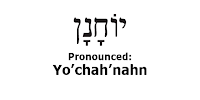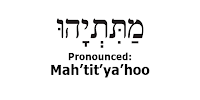The Hebrew Name Elisheva
(Are you looking for our Twebrew School Treats about the Hebrew alphabet or our Hebrew Instructional videos? Click here for a directory!)

Listen to Elisheva pronounced
Isabella is actually the Italian version of Elizabeth, another name on the most popular names list. Elizabeth and Isabella are both derivatives of the Hebrew, Elisheva (pronounced Eh’lee’sheh’va).
Elisheva, Aaron’s wife, is described (Exodus 6:23) as the daughter of Aminadav and the sister of Nachshon, the prince of the tribe of Judah. Aaron and Elisheva had four sons. The sages note that at the inauguration of the Tabernacle, Elisheva had five reasons to rejoice: “her brother-in-law [Moses] was ‘king,’ her husband was high priest, her son [Eleazer] was assistant [to the High Priest], her grandson [Pinchas] was the priest anointed for war, and her brother [Nachshon] was prince of a tribe [Judah],” (Zevachim 102a). However, instead of rejoicing, she mourned her two sons, Nadav and Avihu, who, on that very day, died when they brought an unauthorized sacrifice (Leviticus 10).
Although Aaron was able to temporarily set aside his grieving at the time in order to continue the joyous celebration of the inauguration of the Tabernacle, Elisheva’s life was forever marred by the tragic loss of her sons. Elisheva is therefore described (rightly or wrongly) as one unable to appreciate all the gifts of her life (Leviticus Rabbah 20:2).
Copyright © 2011 National Jewish Outreach Program. All rights reserved.

Listen to Elisheva pronounced
Isabella is actually the Italian version of Elizabeth, another name on the most popular names list. Elizabeth and Isabella are both derivatives of the Hebrew, Elisheva (pronounced Eh’lee’sheh’va).
Elisheva, Aaron’s wife, is described (Exodus 6:23) as the daughter of Aminadav and the sister of Nachshon, the prince of the tribe of Judah. Aaron and Elisheva had four sons. The sages note that at the inauguration of the Tabernacle, Elisheva had five reasons to rejoice: “her brother-in-law [Moses] was ‘king,’ her husband was high priest, her son [Eleazer] was assistant [to the High Priest], her grandson [Pinchas] was the priest anointed for war, and her brother [Nachshon] was prince of a tribe [Judah],” (Zevachim 102a). However, instead of rejoicing, she mourned her two sons, Nadav and Avihu, who, on that very day, died when they brought an unauthorized sacrifice (Leviticus 10).
Although Aaron was able to temporarily set aside his grieving at the time in order to continue the joyous celebration of the inauguration of the Tabernacle, Elisheva’s life was forever marred by the tragic loss of her sons. Elisheva is therefore described (rightly or wrongly) as one unable to appreciate all the gifts of her life (Leviticus Rabbah 20:2).
Copyright © 2011 National Jewish Outreach Program. All rights reserved.


Comments
Post a Comment